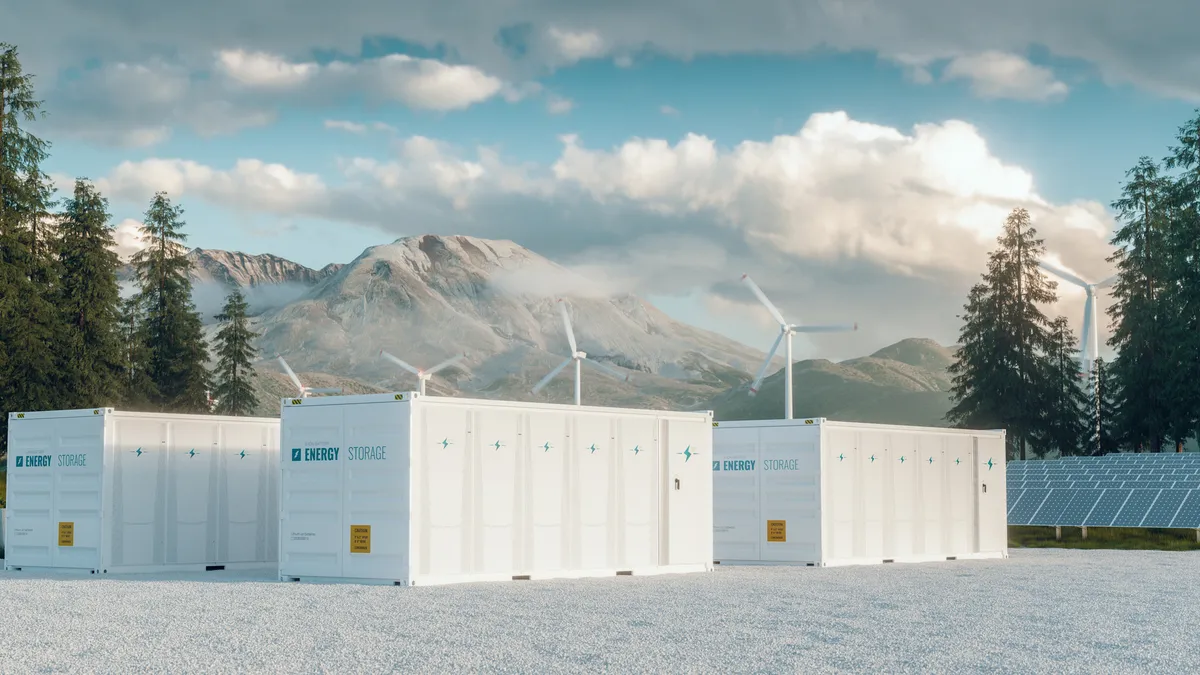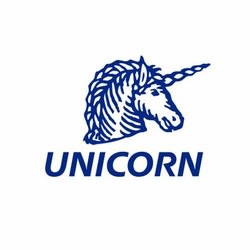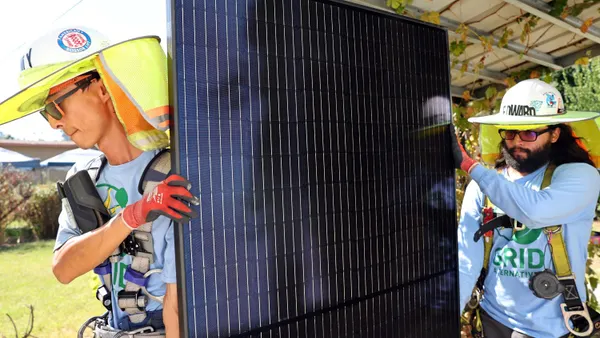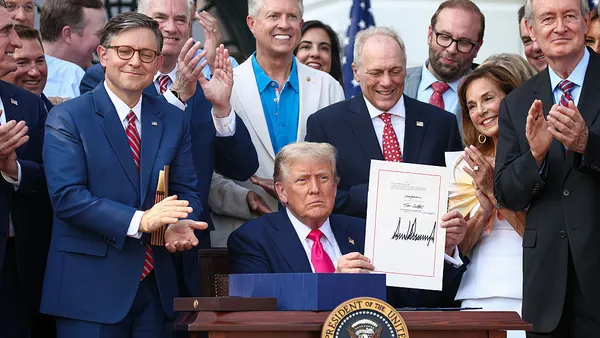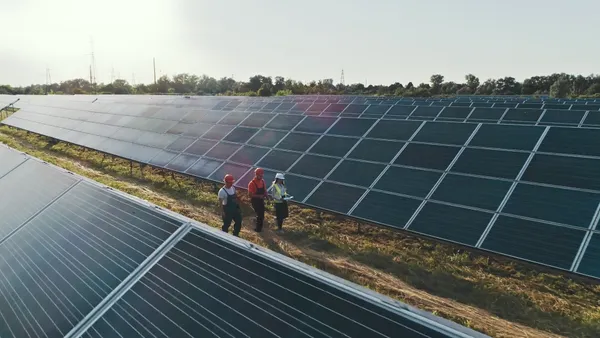Dive Brief:
- The White House will support environmentally sustainable critical mineral extraction and offer incentives to domestic manufacturers as part of a strategy, released Thursday, to boost the domestic supply chain for clean energy products.
- The Department of Energy (DOE) plan identifies 40 strategies for the executive branch to improve the clean energy supply chain, including a focus on critical mineral development. That includes a $44 million program announced Thursday to provide commercial-ready technologies for extraction of copper, nickel, lithium, cobalt and other critical minerals.
- As part of the supply chain strategy, DOE also calls on Congress to pass additional tax incentives to support clean energy manufacturing and deployment, appropriate funds for mineral acquisition and establish training programs to improve the manufacturing workforce. The administration also calls on Congress to fund electricity grid upgrades and resilience to promote clean energy deployment.
Dive Insight:
While the Biden administration has ramped up the country’s ambitions to deploy clean energy to achieve a carbon-free electricity grid by 2035, the White House has also acknowledged that the U.S. faces vulnerabilities in the clean energy supply chain.
A report released in June 2021 detailing the country’s battery supply chain found that the U.S controls less than 10% of the global market share for battery components and cell fabrication, compared to China’s 75% of the world’s cell fabrication capacity. China also controls 55% of the world’s rare earths mining capacity and 85% of its refining, the report found.
On a virtual roundtable Tuesday with governors and manufacturing industry officials, Biden warned that “we can’t build a future that’s made in America if we ourselves are dependent on China for the materials, the power, the products.” The supply chain and shipping issues that have affected every global industry have also blunted clean energy installations. An October 2021 report from Rystad Energy found that 50 GW – more than 50% – of global utility solar PV developments planned for 2022 could be postponed or canceled because of supply delays or cost increases.
The new strategy document comes after an executive order signed last year calling for an administration-wide focus on supply chain issues. The report includes a number of concrete plans for the administration, including competitive grants, direct loans and loan guarantees that will support domestic manufacturing companies. DOE will also create a new Manufacturing and Energy Supply Chains office to work with private-sector companies, federal agencies and other stakeholders. Using funding from the bipartisan Infrastructure Investment and Jobs Act, DOE will also invest $140 million for a rare earth element refining facility and more than $6 billion for domestic battery materials processing.
The document also calls for more support for domestic mining of clean energy materials, notably lithium. California Gov. Gavin Newsom (D) joined the White House roundtable Tuesday to talk up the potential of lithium mining in the state's Salton Sea region. While extraction has only begun in pilot stages, Newsom said the area had the potential to be “a game changer in terms of our efforts to transition to low-carbon green growth and radically change the way we produce and consume energy.”
In a statement, Lauren Pagel, policy director for Earthworks, called on Biden to include “reform of our nation’s outdated mining regulations and investment in just and equitable solutions to create a circular minerals economy.”
A DOE fact sheet says the administration will support “environmentally sustainable” extraction, processing and refining activities and will “embed strong labor standards and support for organized labor” in the manufacturing incentives.


